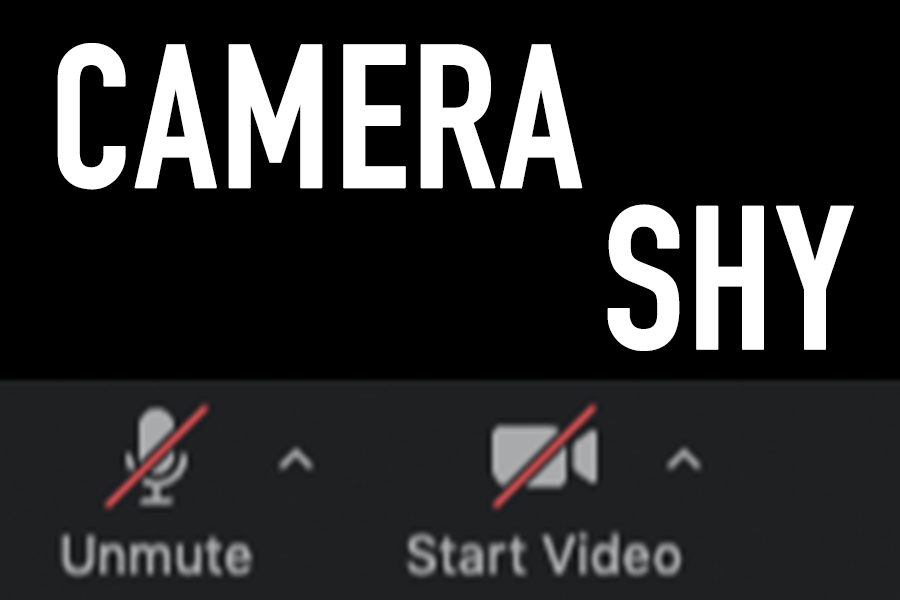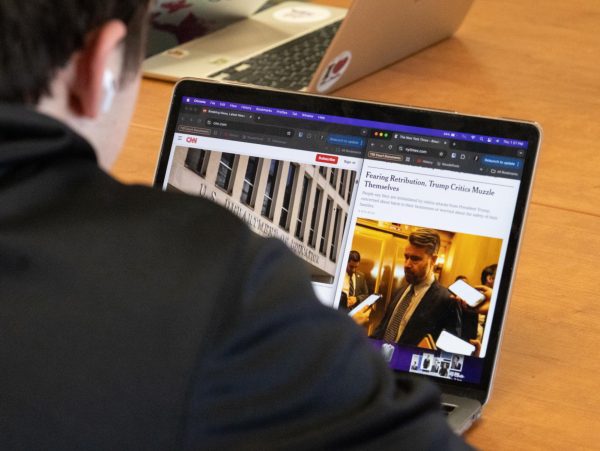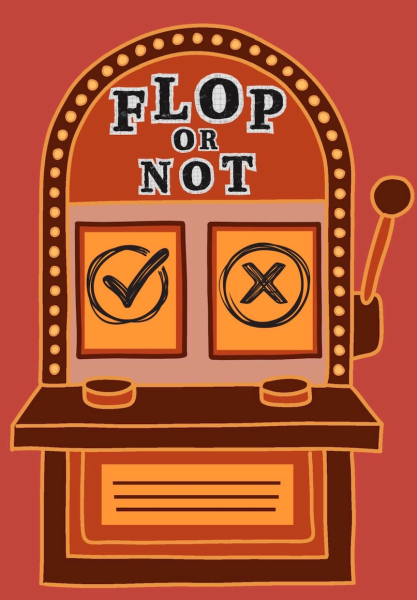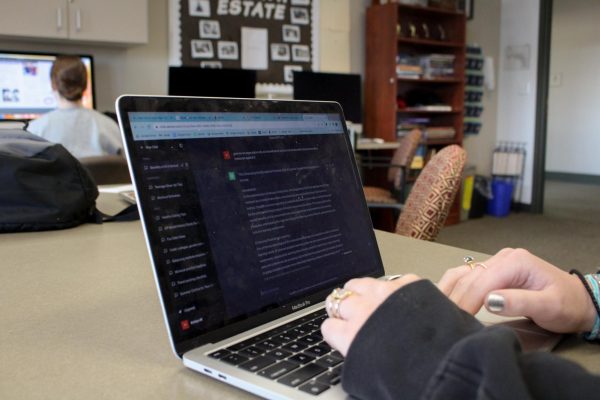Camera Shy
Has the right to privacy turned into a privilege?
Photo: Owen Hewitt
Students are expected to be camera ready, but is this standard fair to all?
At the start of pandemic school, students had the option to turn cameras on or off, but as we got deeper into the school year “Zoom etiquette” became less of an expectation and more of a requirement. On November 6, Director of the Upper School Ms. Pam McCarthy sent a reminder to the student body of the expectations for attending school remotely via Zoom. One of the requirements is having your camera on and being visible on-screen. But certain kinds of privilege can play a part in being able to be visible during class.
Ideally when students are in class remotely, they would be prepared to be on camera. However, that is not always possible. Teachers should take into consideration that everyone is not fortunate enough to have a private work space that allows them to be visible. For some students, their best available work space is their bed.
Due to the coronavirus pandemic, many adults are finding that it is safer to work from home, which can disrupt some students’ ability to be visible and participate in class due to other members of their household working remotely. According to a study by Stanford University, 42% of Americans are currently working from home, and According to the US census, 93% of American students are learning from home. A record number of Americans are working and learning remotely, which creates a lack of space in households that teachers should understand. Additionally, mental health issues have been on the rise in students who are participating in online learning and have made it quite difficult for some students to control their stress levels.
In these unprecedented times students have gone through an extreme amount of anxiety. According to the CDC, 9.1% of students suffer from social anxiety because of the drastic change in learning COVID-19 has caused, and rates of social anxiety will only continue to rise. Recently, there has been a demand for cameras being on during class, so that students can be seen by teachers and their in-person peers. The thought of being projected to the entire class can make a lot of people uncomfortable. Students have also been on their computers a lot recently and issues with technology are inevitable. Some students are not fortunate enough to have a source of technology that allows them to participate.
When being online for school students obviously need a form of technology, preferably a laptop. The school does provide computers and a tech office to help students with their technical difficulties, which is great. However, some students did not get their computers through the school and if something goes wrong with their computers the school may or may not be able to fix it. It is great that teachers are able to reach out and see if they can do anything to help fix their situation. However, sometimes students don’t have the funds to fix their cameras, so they should not feel the pressure of having cameras on nor feel like their grade will be lowered because of these difficulties. Teachers should understand that these rules for zoom are not feasible for everyone and these rules have transformed the right to privacy into a privilege.












